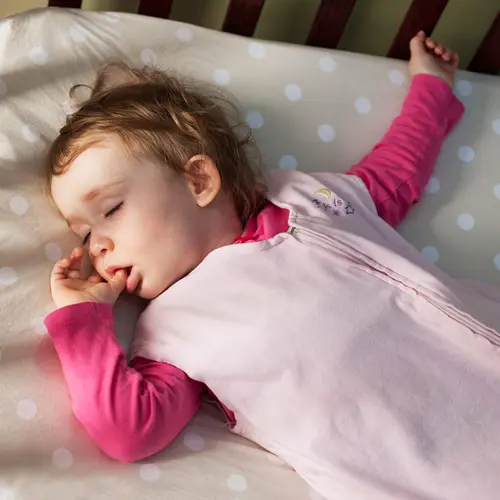Cleaning your baby's teeth is important for keeping their mouths healthy. Without good care, they can get cavities and other problems. Before their first teeth start coming in, though, newborns need their tongues, gums, and inner cheeks to be bacteria-free to avoid potential health issues. A baby tongue cleaner can be a great tool for this.
It’s a plastic, copper, or stainless steel device that allows you to clean microbes from your baby's tongue. It works by pulling the scraper forward from the back of the tongue a couple of times. If you buy one of these products, carefully follow its instructions on how to use it safely, store it, and keep it clean.
Why You Should Keep Your Baby's Tongue Clean
Infants start teething at around 4 months old. Even before that happens, regular oral hygiene is a must. Leaving breast milk or formula residues in your baby's mouth for days allows bacteria to thrive in their sugary saliva. This can cause fungal infections.
It's normal for your baby to have a seemingly discolored tongue after nursing. That's the milk residue that sticks to the surface of their tongue. But if you notice creamy white wounds inside your baby's mouth, that's probably oral thrush.
Thrush is a common fungal infection that can spread rapidly, so talk to your doctor if you think your baby has it. It looks like small lumps of cottage cheese that you can't easily wipe away. Babies with thrush have discomfort and burning that makes it hard for them to eat.
It can easily spread to a breastfeeding mother's nipples, too.
Lack of oral hygiene in babies with teeth and toddlers can quickly cause plaque to build up, and it could lead to tooth decay. Bacteria in the plaque produce acids whenever your infant or toddler eats a sugary snack. These acids corrode the protective exterior layer of the teeth called dental enamel and cause cavities.
How to Properly Clean Your Baby's Tongue and Teeth
Babies and small children need an adult's help to keep their tongues clean. To clean your baby's tongue and gums correctly, you should:
- Make a habit of cleaning after feeding.
- Gently cradle your baby in one arm during the cleaning.
- Use a damp gauze or washcloth, or a silicone baby tongue cleaner.
- Gently massage their gums, tongue, and inner cheeks.
If your baby won't let you clean their mouth, put a finger near their mouth and wait until they slowly open it. Once your baby's mouth is open, place your finger in gently and with patience. Make your way in along the inner cheek if you can't reach the gums toward the back of their mouth.
Are Baby Tongue Cleaners Worth It?
Having clean teeth is only one part of oral hygiene. Using a tongue cleaner or scraper can reduce plaque by getting rid of certain bacteria in the mouth.
As your little one gets older and you teach them how to take care of their teeth, keep in mind that tongue scraping isn’t a substitute for brushing teeth. Kids who clean their tongues along with brushing tend to have less plaque, though.
Some other dental care tips are:
- Don’t give your children lots of sugary foods and drinks.
- Use a toothpaste that has fluoride.
- Make sure your child only uses a pea-sized amount of toothpaste.
- Don’t allow babies and toddlers to go to sleep while feeding with a bottle in their mouth.
- Avoid sharing utensils with your child.
- Schedule their first dental appointment by one year of age.


